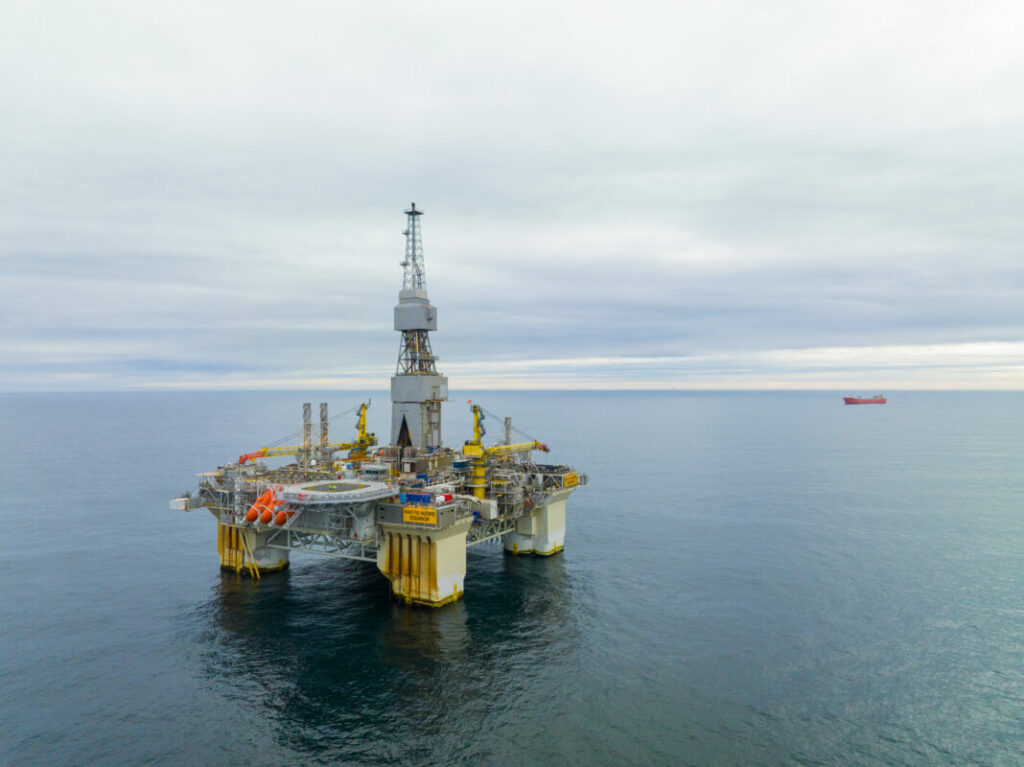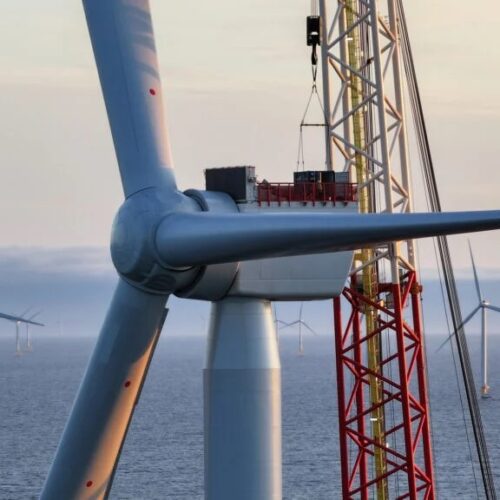Analysis by the Energy and Climate Intelligence Unit (ECIU) has found that new North Sea gas licenses would account for only 1% of the fuels used in the UK by 2030.
The study, which examines the impact of declining UK oil field production with and without new licenses, precedes the second reading of the Offshore Petroleum Licensing Bill taking place today (8 January).
The new legislation that would support the future licensing of new oil and gas fields in the North Sea was officially announced in the King’s Speech delivered at the State Opening of Parliament on 7 November.
The announcement was met with heavy criticism from the renewable industry and labelled “little more than political posturing that is unlikely to increase domestic oil and gas production,” by Sam Richards CEO at pro-growth campaign group, Britain Remade.
Chris Skidmore MP cited the Offshore Petroleum Licensing Bill as the reason for his resignation as a member of the Conservative party on 5 January, stating that he can “no longer condone nor continue to support a government to a course of action that I know is wrong and will cause future harm,” according to Skidmore’s resignation statement, posted on X.
“I cannot vote for the bill next week. The future will judge harshly those that do,” Skidmore added.
A Statement pic.twitter.com/XugtbnCYlV
— Chris Skidmore (@CSkidmoreUK) January 5, 2024
According to recent reports by The Guardian former COP26 chair, Alok Sharma joined Skidmore in voicing his intention to refuse voting got the new licensing bill during a BBC Radio 4 programme.
80% of oil from new fields added will be traded internationally
Explaining the reasoning behind the November announcement secretary of state for energy security and net zero, Claire Coutinho said that the volatility of international energy markets meant it was “just common sense” to make the most of the UK’s “homegrown advantages.”
According the ECIU’s analysis however, this is unlikely to be the case as the declining proportion of North Sea crude oil used in UK refineries, “mismatches” between refinery output and UK demand, alongside the high level of exported fuels, “very small proportions of the oil-based fuels that Britons use come from the UK oil fields via UK refineries”.
The ECIU noted that the government itself acknowledged that 80% of the oil from the new fields added by the additional licenses (such as Rosebank) will be traded internationally. This was confirmed by Amanda Solloway, Conservative MP for Derby North, during parliament questions for the Department for Energy Security and Net Zero (DESNZ) on 28 November, who stated it was “not desirable” that the fuel stay in the UK.
Put into perspective, UK oil fuels supplied only 13% of the oil-based fuels used by the nation in 2022.
Citing forecasts taken from the North Sea Transition Authority (NSTA) for oil production in existing fields, the ECIU predicted that, should UK demand for oil-based fuels remain unchanged and import/exports shares continue as in 2022, by 2030 fuel from domestic oil fields via UK refineries would be the source of:
- one in every 24 litres of petrol (compared to 13 litres in 2022)
- one in every 31 litres of road diesel (compared to 16 litres in 2022)
- one in every 60 litres of aviation fuel (compared to 30 litres in 2022)
The ECIU also measured the maximum levels of fuels used in the UK from domestic oil fields via UK refineries within NSTA’s projections and found that, if demand for fuel remains the same, it would account for:
- one in every 20 litres of petrol
- one in every 26 litres of road diesel
- one in every 50 litres of aviation fuel
This means that, by 2030, new oil and gas licenses would increase the amount of domestically-sourced fuels used by each fuel (petrol, diesel and aviation) in the UK by only 1%.
Dr Simon Cran-McGreehin, head of analysis at ECIU called the new licenses a “distraction from policies that would have a real, lasting impact on the UK’s energy independence,” adding that as the oil is earmarked for international trade the Bill wouldn’t “make any real difference to UK prices.”
Making more oil available to the international market also appears at odds with the UK’s COP28 commitment of up to £40 million in new funding to support countries finance and deliver their climate commitments under the Paris Agreement via the UK’s Climate Finance Accelerator.
Cran-McGreehin also criticised the UK government’s efforts to boost the nation’s energy independence by “properly” backing domestic renewables and helping insulate UK homes.
“The government is doing much less well on those fronts and with everyone in agreement that the North Sea will inevitably continue to decline, unless efforts are upped, the UK’s energy independence is being put further in jeopardy,” warned Cran-McGreehin.
“The notion that more drilling on the continental shelf boosts our energy security doesn’t stand up to scrutiny,” added Professor Gavin Bridge, fellow of the Durham Energy Institute at Durham University, adding that even the price of oil pumped in the North Sea that is refined in Britain is “largely dictated by international markets.”






